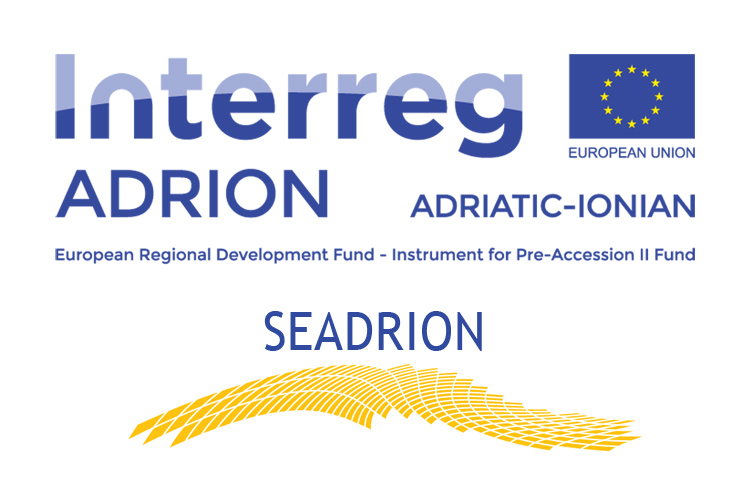The recent Heating and Cooling Strategy from Commission indicated that emissions related to energy used for heating and cooling of buildings can be significantly reduced with technologies which use renewable energy sources and have high efficiency. Taking this into consideration the SEADRION project aim to support the development of a regional innovation system for the Adriatic-Ionian area with the installation of 3 renewable energy facilities in the public buildings located in Greece and western and south part of Adriatic Croatia. These facilities are seawater heat pump, an innovation system that uses the thermal energy contained in a reservoir (sea) to achieve the cooling and thermal energy in the buildings which are close to the sea. The main objective of the SEADRION is to identify benefits and barriers associated with the use of this technology and to find a system solution designed to improve the use of the seawater heat pump technology and to make the building's energy self-sufficient and independent of fossil fuels.
The main outputs of the SEADRION project are transnational seawater heat pump network to support sustainable development in ADRION region, science and technology cooperation between research institutions and enterprises to enhance innovation capacity of the heat pump sector with the aim to enhance their innovation skills, capacities and competencies and common strategy to enhance the use of seawater heat pump based heating and cooling in ADRION region.
The development of a business support network with innovative features, training as well as mediation and networking between enterprises will facilitate the specific innovation transfer and will increase the competitiveness of its members.


-

SID Banka d.d.
Bank is an important player for ensuring financial resources for implementation of investments...
-

Municipality of Vlora, Directorate of Projects Coordination and Foreign Investments/Directorate of Infrastructure and Projects Implementation
Vlora is the third most populous city of the Republic of Albania. It is the capital of...
-

AICARR (Associazione Italiana Condizionamento dell’Aria Riscaldamento e Refrigerazione) – Italian Association for the Air Conditioning Heating and Refreshing
AICARR is of great interest and of potential involvement because it creates and promotes...
-

Gruppo italiano Pompe di Calore - Italian Heat Pumps Group
The Group contributes, through an active and extensive participation of its members,...
-

HIDROTEKN
HIDROTEKN deals with heating and cooling systems, solar systems and their components...
-

Municipality of Maronia-Sapes
As a local public authority located on the Aegean Sea, the Municipality has basic touristic...
-

ITS-Consulting d.o.o.
ITS Consulting has a year of experience with cooling systems, including heat pumps and...
-

Deltaprojekt j.d.o.o.
Deltaprojekt j.d.o.o. is working on a lot of household projects as designer’s but also...
-

University of Trieste Department of Engineering and Architecture - DIA
By its nature DIA can be strongly engaged in synergies with related companies and the...
-

The University of Zagreb, Faculty of Mining, Geology and Petroleum Engineering
Faculty of Mining, Geology and Petroleum Engineering is a higher educational institution...
-

Punta Skala d.o.o.
Punta Skala will be able to share their experience with the seawater heat pump and we...
-

Institute Jozef Stefan/ Energy Efficient Centre
The Centre is the key actor for the development, collection and transfer of knowledge...
-

National Institute of Biology/Marine Biology Station Piran
They are an important researcher of coastal waters. They are engaged in both experimental...
-

Alexander beach hotel and spa
Hotel is on the coast of Alexandroupolis and could be a potential user of this technology...
SEADRION materials
Download digital materials related to the project
SEADRION: Seawater heat pump operation experience
“SEADRION – Seawater heat pump operation experience” will be held via ZOOM Video Webinar on Tuesday, July 27th 2021. from 10:00 to 11:00 AM
